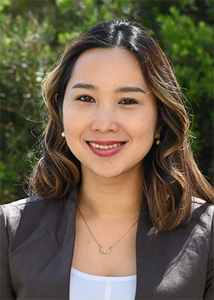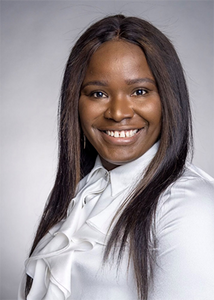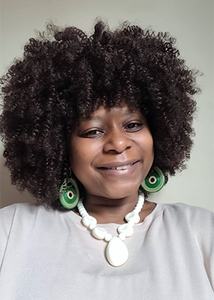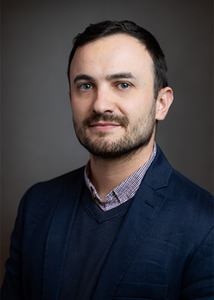Announcing the 2025-26 Non-Resident Global Health Politics Fellows
The Frederick S. Pardee Center for the Study of the Longer-Range Future is pleased to announce its 2025-26 Global Health Politics Fellows. The distinguished group of Non-Resident Fellows were selected by the Global Health Politics Workshop’s (GHPW) Steering Committee.
Fellows will participate in GHPW events throughout the course of the academic year and receive feedback and mentorship from a Steering Committee member on a research paper in the field of global health politics.
Meet the 2025-26 Global Health Politics Fellows:
Mutiara Indriani
 Mutiara Indriani is a PhD Candidate and Australia Awards scholar at the School of Regulation and Global Governance (RegNet), The Australian National University (ANU). She applies an interdisciplinary approach to explore how political economic conditions contribute to COVID-19 vaccine access in Southeast Asia. Her research currently focuses on the interplay of institutional, ideational, and actor interests during the pandemic, particularly in Indonesia, Singapore and Thailand.
Mutiara Indriani is a PhD Candidate and Australia Awards scholar at the School of Regulation and Global Governance (RegNet), The Australian National University (ANU). She applies an interdisciplinary approach to explore how political economic conditions contribute to COVID-19 vaccine access in Southeast Asia. Her research currently focuses on the interplay of institutional, ideational, and actor interests during the pandemic, particularly in Indonesia, Singapore and Thailand.
Isabella Lenihan-Ikin
 Isabella Lenihan-Ikin (she/her) is a DPhil Candidate in Clinical Medicine at the University of Oxford, where she is studying on a Rhodes Scholarship. Her research focuses on the health impacts of climate change on people that work in outdoor manual labour in New Zealand, where she is from. Isabella also holds Masters of Science in International Health and Tropical Medicine from the University of Oxford (Dist.), a Bachelor of Laws and a Bachelor of Science with Honours (First Class) from Victoria University of Wellington in New Zealand. She is a Barrister and Solicitor, admitted to the High Court of New Zealand.
Isabella Lenihan-Ikin (she/her) is a DPhil Candidate in Clinical Medicine at the University of Oxford, where she is studying on a Rhodes Scholarship. Her research focuses on the health impacts of climate change on people that work in outdoor manual labour in New Zealand, where she is from. Isabella also holds Masters of Science in International Health and Tropical Medicine from the University of Oxford (Dist.), a Bachelor of Laws and a Bachelor of Science with Honours (First Class) from Victoria University of Wellington in New Zealand. She is a Barrister and Solicitor, admitted to the High Court of New Zealand.
Tozoe Marton
 Tozoe Marton is a dedicated global health professional with extensive experience in health policy, research, and academia. She holds advanced degrees in Global Health Policy and Social Policy from Brandeis University, and a BA in Sociology and International Relations from Simmons University, where she now teaches as adjunct faculty. Her work focuses on maternal health in sub-Saharan Africa, with a PhD dissertation exploring the role of professional midwifery and the impact of working environments on care quality, access and efficiency. A 2025 AAUW International Fellowship recipient, Tozoe has conducted extensive field research in Kenya and aims to complete her PhD by May 2026.
Tozoe Marton is a dedicated global health professional with extensive experience in health policy, research, and academia. She holds advanced degrees in Global Health Policy and Social Policy from Brandeis University, and a BA in Sociology and International Relations from Simmons University, where she now teaches as adjunct faculty. Her work focuses on maternal health in sub-Saharan Africa, with a PhD dissertation exploring the role of professional midwifery and the impact of working environments on care quality, access and efficiency. A 2025 AAUW International Fellowship recipient, Tozoe has conducted extensive field research in Kenya and aims to complete her PhD by May 2026.
Pamella Liz Pereira
 Pamella Liz Pereira is a researcher in the project Acolhe: Care for Women and LGBTQIAPN+ People Experiencing Homelessness at USP (University of São Paulo). She was a Postdoctoral Fellow at the School of Public Health, FSP-USP (2022–2025) and SMAPL project Visiting Researcher at Justus Liebig University, Germany (2024), with previous research experience at Rutgers University (USA) and in the Epidemic Ethics group (PPGBIOS/FIOCRUZ and Oxford University/WHO).
Pamella Liz Pereira is a researcher in the project Acolhe: Care for Women and LGBTQIAPN+ People Experiencing Homelessness at USP (University of São Paulo). She was a Postdoctoral Fellow at the School of Public Health, FSP-USP (2022–2025) and SMAPL project Visiting Researcher at Justus Liebig University, Germany (2024), with previous research experience at Rutgers University (USA) and in the Epidemic Ethics group (PPGBIOS/FIOCRUZ and Oxford University/WHO).
Tiago Tasca
 Tiago Tasca is a Ph.D. Candidate in Politics at the University of California, Santa Cruz. His doctoral research examines the political and institutional determinants of public health outcomes in Latin America, with a focus on preventive health in Brazil. Using a subnational comparative politics framework, he employs mixed-methods, including survey experiments and extensive fieldwork, to analyze how interactions between misinformation, political behavior, trust in institutions, and state capacity shape health governance and individual compliance with public health interventions in decentralized countries.
Tiago Tasca is a Ph.D. Candidate in Politics at the University of California, Santa Cruz. His doctoral research examines the political and institutional determinants of public health outcomes in Latin America, with a focus on preventive health in Brazil. Using a subnational comparative politics framework, he employs mixed-methods, including survey experiments and extensive fieldwork, to analyze how interactions between misinformation, political behavior, trust in institutions, and state capacity shape health governance and individual compliance with public health interventions in decentralized countries.
Lucia Vitale
 Lucia Vitale is an interdisciplinary global health scholar who uses comparative, mixed methods to study the politics of primary healthcare access in border spaces. She is a PhD candidate in the Politics Department at the University of California at Santa Cruz, and an adjunct professor in Georgetown’s Science, Technology, and International Affairs (STIA) program, and at the Institute for the Study of International Migration (ISIM). Vitale’s dissertation project, entitled Assembled (In)access: the borderlands of health care between Haiti and the Dominican Republic, compares four rural border sites—two Haitian communities and two Dominican communities—to show how individuals residing on either side of the border navigate across the border, and between state and non-state health services in order to piece together primary healthcare services. Her broader work has engaged topics of intellectual property rights in health and medicine, and the promises and pitfalls of artificial intelligence for global health.
Lucia Vitale is an interdisciplinary global health scholar who uses comparative, mixed methods to study the politics of primary healthcare access in border spaces. She is a PhD candidate in the Politics Department at the University of California at Santa Cruz, and an adjunct professor in Georgetown’s Science, Technology, and International Affairs (STIA) program, and at the Institute for the Study of International Migration (ISIM). Vitale’s dissertation project, entitled Assembled (In)access: the borderlands of health care between Haiti and the Dominican Republic, compares four rural border sites—two Haitian communities and two Dominican communities—to show how individuals residing on either side of the border navigate across the border, and between state and non-state health services in order to piece together primary healthcare services. Her broader work has engaged topics of intellectual property rights in health and medicine, and the promises and pitfalls of artificial intelligence for global health.